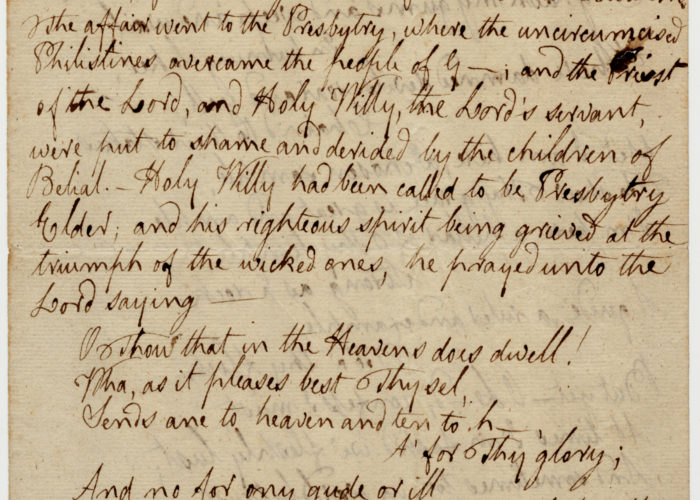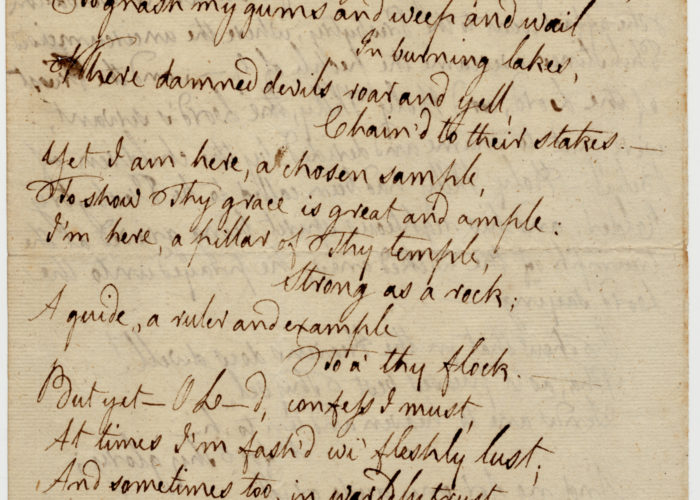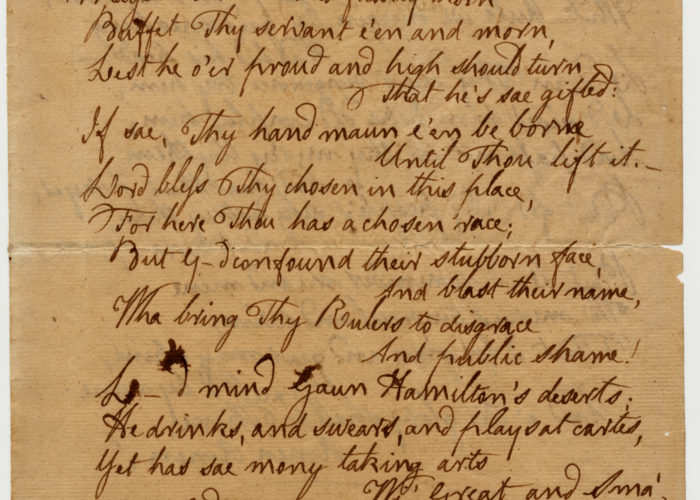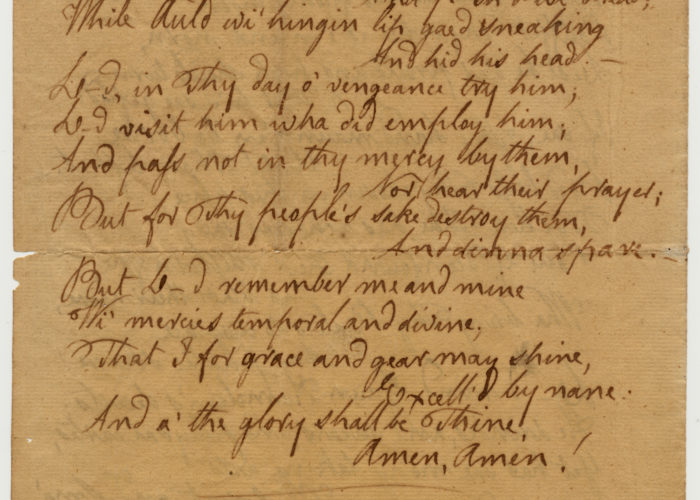Holy Willie’s Prayer
Theme: The arts in the Age of Revolution, Social and cultural revolution, Printing revolution
Robert Burns also known as Rabbie Burns and as ‘the Bard’ in Scotland, was a Scottish poet and lyricist. He is widely regarded as the greatest Scottish poet and is celebrated each year in Scotland on Burns Night, with traditional suppers including haggis and whiskey, followed by readings of his poetry. His poems used humour and familiar subjects to express big ideas, making them instantly accessible to a wide range of people and are still popular today. Their subject matter, egalitarianism (stressing equality and ordinary people), and underpinning Romanticism left an important imprint that inspired many future reformers.
Robbie Burns (1759 – 1796) was born in Ayrshire. His parents were farmers, who ensured their son had a good education and encouraged his love of reading. Burns began to write poetry inspired by the lives of the ordinary people he grew up with. He used everyday characters and scenes to write about weighty themes such as poverty, inequality, sexuality and identity.
He was also inspired by some of the ideas and events of the Age of Revolution such as republicanism, radicalism and anticlericalism. He wrote a ‘Birthday Ode for George Washington’ in 1794 and was influenced by female writers such as Mary Wollstonecraft. He was a pioneer of the Romantic movement, his work inspiring Romantic poets such as William Wordsworth and Percy Shelley. His influence continued around the world after his death.
This poem challenges religious hypocrisy by poking fun at church elder, Willie Fisher. In the poem, Willie Fisher condemns Gavin Hamilton (a friend of Burns) for employing men to work on a Sunday, which Fisher regarded as a day for religious activity alone. However, Fisher was known to be lecherous and a drunkard among his church community and, in the poem, demands that the wrath of God fall on Hamilton while trying to excuse his own bad behaviour.
This is the original manuscript of the poem, written by Robbie Burns in 1785.
Find a transcript and listen to it being read here by Richard Wilson.
Did you know..?
The famous song Auld Lang Syne, sung every year at Hogmanay and at New Year’s Eve celebrations around the world, was written, as a poem, by Robbie Burns.
Sources & acknowledgements
This object description and its related educational resources were researched and written by our team of historians and education specialists. For further information see the item’s home museum, gallery or archive, listed above.
-
Did you know..?
The famous song Auld Lang Syne, sung every year at Hogmanay and at New Year’s Eve celebrations around the world, was written, as a poem, by Robbie Burns.
-
Education overview
You can access a range of teachers resources related to this object and more on our education page.
Please also see our glossary of terms for more detailed explanations of the terms used.
-
Curatorial info
- Originating Museum: Robert Burns House, Dumfries
- Accession Number: DUMFM:1936.2.4
- Production Date: 1785
- Creator: Robert Burns
- Material: Paper
- Size: length 309mm, width 186mm
- Original record
-
Use this image
You can download this image for personal and educational use but please take note of the license type and rights holder information.
- Rights Holder: Dumfries & Galloway Council
- License Type:









